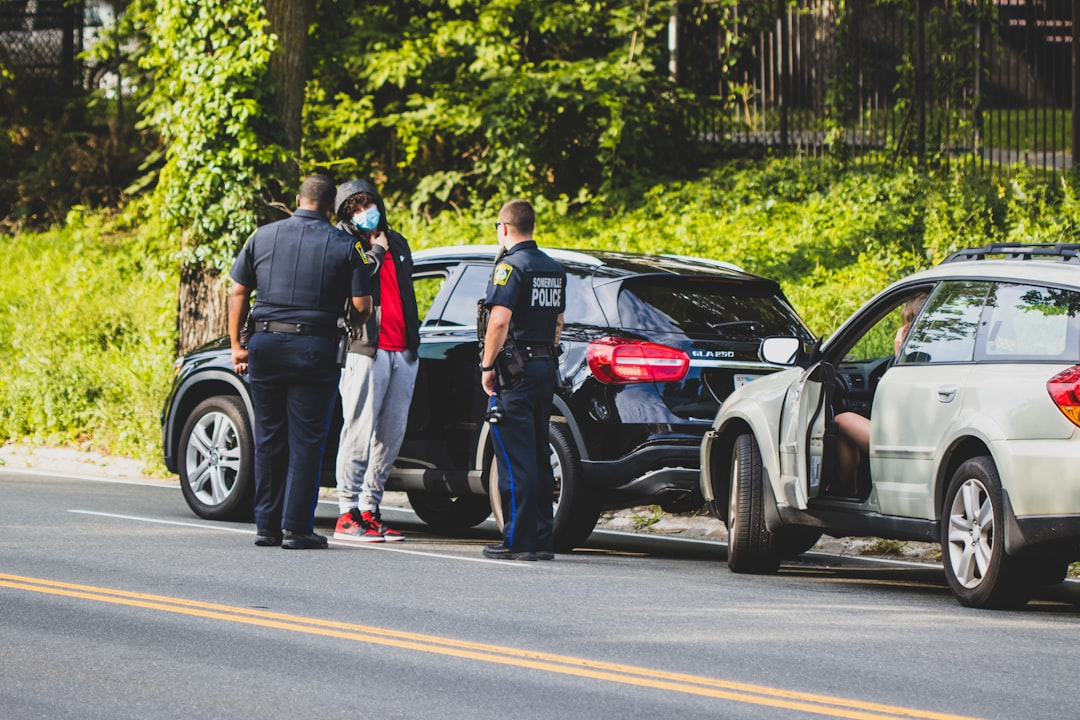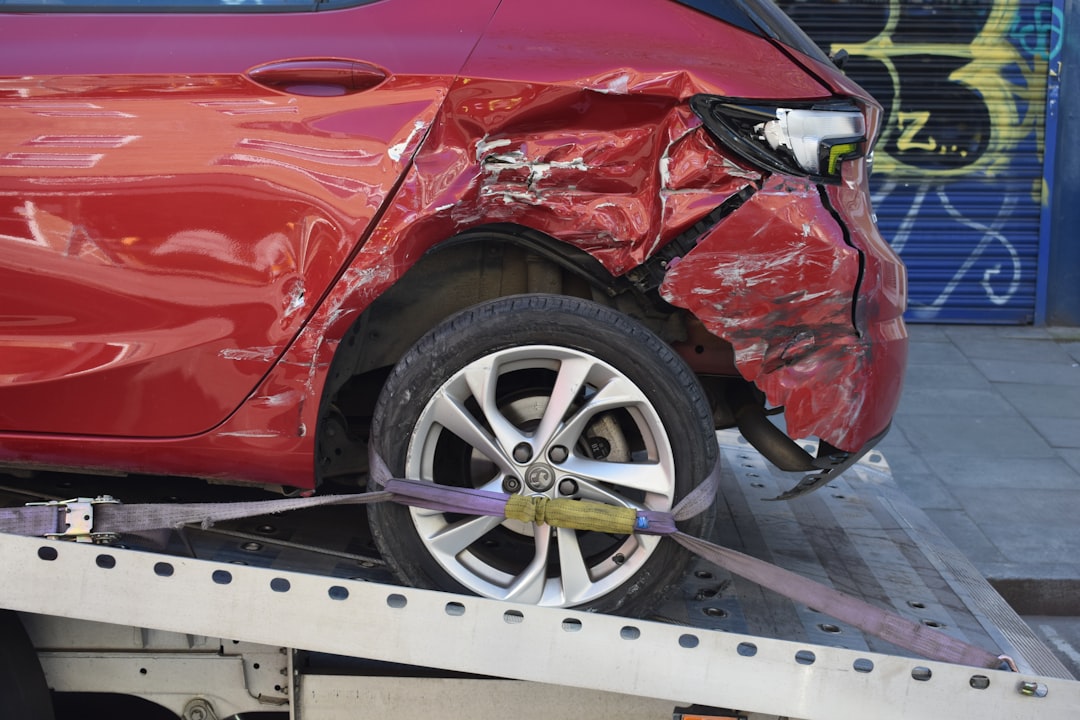Common Types of Traffic Violations
Traffic law violations are prevalent occurrences on roadways across the globe, often leading to accidents, congestion, and a general compromise of public safety. Understanding common types of traffic violations can help drivers become more aware of their actions and the potential repercussions. In this essay, we will explore some of the most frequently encountered traffic infractions: speeding, running red lights, distracted driving, DUI (driving under the influence), and illegal parking.
Speeding is perhaps the most ubiquitous traffic violation. Despite clear speed limits posted on roads, many drivers habitually exceed these limits in an attempt to save time or due to inattentiveness. Speeding significantly increases the risk of accidents by reducing reaction times and increasing stopping distances. Moreover, higher speeds result in more severe impacts during collisions, which can lead to greater injury or fatality rates.
Running red lights is another common violation with potentially deadly consequences. Traffic signals are designed to regulate flow and prevent collisions at intersections. However, impatience or a lack of attention can lead drivers to ignore red lights entirely. This not only endangers themselves but also other motorists and pedestrians who expect right-of-way adherence at intersections.
Distracted driving has emerged as a significant concern in recent years with the proliferation of smartphones and other digital devices. Activities such as texting, browsing social media, or even adjusting GPS settings divert attention from the road. Distracted driving reduces situational awareness and impairs decision-making abilities, making it a leading cause of modern vehicular accidents.
Driving under the influence (DUI) remains one of the most dangerous traffic violations. Alcohol and drugs impair cognitive functions and motor skills critical for safe driving. DUI laws exist to deter individuals from operating vehicles while intoxicated due to their high propensity for causing severe accidents. Enforcement through breathalyzers, sobriety checkpoints, and stringent legal penalties aims to curb this perilous behavior.
Illegal parking may seem less egregious compared to other violations but still presents significant issues for urban mobility and accessibility. Parking in no-parking zones or handicapped spaces without proper authorization creates obstacles for emergency services and inconveniences others who rely on designated spots for specific needs. Additionally, improperly parked vehicles can obstruct view lines at intersections or block pedestrian pathways.
In conclusion, common types of traffic violations like speeding, running red lights, distracted driving, DUI, and illegal parking pose substantial risks to public safety on our roads. Awareness campaigns alongside strict enforcement measures are vital in promoting responsible driving behaviors that ensure safer travel for everyone sharing the roadways.
Consequences of Traffic Violations
Traffic law violations, while often perceived as minor infractions, carry a myriad of consequences that extend beyond immediate fines or penalties. The repercussions of these violations can ripple through various aspects of an individual's life and society at large, underscoring the importance of adherence to traffic regulations.
At the most basic level, the immediate consequence of a traffic violation typically involves monetary fines. These fines vary depending on the severity and nature of the offense. While a single ticket for speeding or running a red light might seem inconsequential initially, repeated offenses can lead to substantial financial burdens. Accumulating multiple tickets can result in escalating fines and potential court fees if one contests the charges.
Beyond financial implications, traffic violations have significant impacts on one's driving record and insurance premiums. Traffic offenses are recorded on an individual's driving history; accruing points from these violations can lead to increased auto insurance rates. Insurance companies view frequent violators as high-risk drivers, thus justifying higher premiums to mitigate potential future claims. Over time, this increase in insurance costs can amount to a considerable expense for those with numerous infractions.
Moreover, serious or repeated traffic violations may lead to more severe penalties such as license suspension or revocation. Losing driving privileges can be profoundly disruptive, affecting one's ability to commute to work, fulfill family responsibilities, or perform daily activities efficiently. For professional drivers who rely on their licenses for employment-such as truck drivers or delivery personnel-a suspended license could mean job loss and consequent economic instability.
The legal ramifications do not stop there. Some traffic offenses are classified as misdemeanors or even felonies in extreme cases-for example, reckless driving resulting in injury or death. Such serious breaches of traffic laws can lead to criminal charges, necessitating legal defense and potentially resulting in jail time. The presence of a criminal record stemming from traffic violations can hinder future employment opportunities and overall quality of life.
On a broader scale, the societal impact of traffic violations is notable. Unsafe driving behaviors contribute significantly to road accidents and fatalities each year. Speeding, distracted driving (such as texting while driving), and drunk driving are leading causes of vehicular accidents that result in injuries and loss of life. The emotional toll on victims' families is immeasurable, while the economic costs related to healthcare services for accident victims and repairs to damaged property further strain public resources.
In addition to human costs, frequent traffic law infractions necessitate increased law enforcement efforts and judicial proceedings which divert resources that could be allocated elsewhere within communities. This diversion affects public safety initiatives broadly and underscores how individual actions behind the wheel have widespread consequences.
In conclusion, while a single traffic violation might appear trivial at first glance, it has far-reaching consequences that affect individuals financially, legally, professionally, and personally-and ripple outwards into broader societal impacts. Recognizing these extensive repercussions highlights why it is crucial for all drivers to adhere strictly to traffic laws not only for their own welfare but also for the safety and well-being of others sharing the roads.
Legal Procedures for Addressing Violations
Legal Procedures for Addressing Violations: Traffic Law Violations
Traffic law violations are a common occurrence on roads worldwide, ranging from minor infractions such as speeding to more serious offenses like driving under the influence (DUI). Addressing these violations is critical to maintaining road safety and ensuring that drivers adhere to established regulations. The legal procedures involved in handling traffic law violations are designed to be fair and efficient, providing due process while deterring future infractions.
When a driver commits a traffic violation, the initial step typically involves being cited by a law enforcement officer. This citation can be issued directly at the scene or sent through automated systems like speed cameras and red light cameras. The citation will detail the nature of the violation, including specifics such as time, location, and type of offense.
Once cited, drivers have several options depending on the severity of the violation. For minor infractions, such as running a stop sign or speeding slightly over the limit, drivers may simply pay a fine. Paying the fine is often seen as an admission of guilt and results in points being added to their driving record. Accumulating too many points can lead to increased insurance premiums and even license suspension.
More serious violations require court appearances. For example, DUI offenses necessitate a mandatory court hearing where evidence is presented and legal arguments are made. During this process, both prosecution and defense can call witnesses and present evidence. The judge or jury then determines guilt based on the evidence provided.
In certain cases, drivers may choose to contest their citations even for minor offenses. They can do this by appearing in traffic court on a specified date mentioned in their citation notice. Contesting a ticket involves pleading not guilty and presenting one's case before a judge or magistrate. If found not guilty, the charges are dismissed; if found guilty, penalties such as fines or community service may be imposed.
An important aspect of addressing traffic law violations is offering educational programs aimed at reformation rather than punishment alone. Many jurisdictions provide options for attending defensive driving courses in lieu of paying fines or accumulating points on one's record. Completion of these courses often results in reduced penalties and helps improve driver knowledge and behavior.
For repeat offenders or those committing particularly egregious acts like reckless driving or vehicular manslaughter, harsher penalties apply. These can include long-term license suspension, hefty fines, mandatory rehabilitation programs, and even imprisonment depending on jurisdictional laws.
The entire framework aims not only at penalizing wrongdoers but also rehabilitating them when possible while keeping public safety paramount. By enforcing these legal procedures meticulously yet fairly, authorities strive to create safer roads for everyone.
In conclusion, addressing traffic law violations involves various steps starting from issuing citations to potential court proceedings based on the severity of offenses committed. The procedures ensure that justice is served while also emphasizing corrective measures over punitive actions alone wherever feasible-thus promoting better compliance with traffic laws among all road users.
Preventive Measures and Safe Driving Practices
Traffic laws are established to ensure the safety of all road users, including drivers, passengers, pedestrians, and cyclists. Despite these regulations, traffic law violations remain a significant cause of accidents and road fatalities worldwide. To mitigate these risks, it is imperative to adopt preventive measures and safe driving practices.
Preventive measures encompass various strategies aimed at averting potential traffic violations before they occur. One of the most effective preventive measures is education. By educating drivers about the rules of the road and the consequences of violating them, we can foster a culture of responsibility and caution. Driver education programs should emphasize not only the legal aspects but also the ethical implications of safe driving. Understanding that every decision made behind the wheel has the potential to save or endanger lives can profoundly impact driver behavior.
Enforcement is another crucial preventive measure. Consistent and fair enforcement of traffic laws serves as a deterrent to would-be violators. Speed cameras, sobriety checkpoints, and increased patrols are tools that law enforcement agencies use to monitor compliance with traffic regulations. Moreover, implementing stringent penalties for serious offenses like drunk driving or excessive speeding underscores the importance society places on adhering to traffic laws.
In addition to these systemic preventive measures, individuals must also commit to safe driving practices. Defensive driving is a cornerstone of safe driving behavior. This involves being constantly aware of one's surroundings, anticipating potential hazards, and making prudent decisions in response to other road users' actions. For instance, maintaining a safe following distance allows for ample reaction time if the vehicle ahead suddenly stops or slows down.
Adhering strictly to speed limits is another fundamental aspect of safe driving practices. Speeding not only reduces reaction time but also increases the severity of accidents when they do occur. It's essential for drivers to recognize that speed limits are not arbitrary numbers; they are carefully determined based on road conditions, traffic density, and pedestrian activity.
Moreover, avoiding distractions while driving cannot be overemphasized in today's technology-driven world. Mobile phones are among the most common distractions that lead to traffic violations and accidents. Texting or calling while driving significantly impairs focus, reaction time, and overall control of the vehicle. Simple measures such as setting mobile devices on "Do Not Disturb" mode while driving can prevent unnecessary distractions.
Driving under the influence (DUI) remains one of the most dangerous violations impacting road safety today. Alcohol impairs judgment, coordination, and reaction times-critical faculties required for safe driving. The implementation of designated driver programs or using ride-sharing services can drastically reduce incidents related to drunk driving.
Lastly, regular vehicle maintenance plays an often overlooked yet vital role in preventing accidents caused by mechanical failures. Ensuring that brakes function properly, tires have adequate tread depth and pressure levels are appropriate enhances vehicle performance and reliability on the road.
In conclusion, preventing traffic law violations requires a multifaceted approach involving both systemic measures like education and enforcement as well as personal commitment to safe driving practices. By understanding our shared responsibility in upholding these standards, we contribute collectively towards safer roads for everyone.





